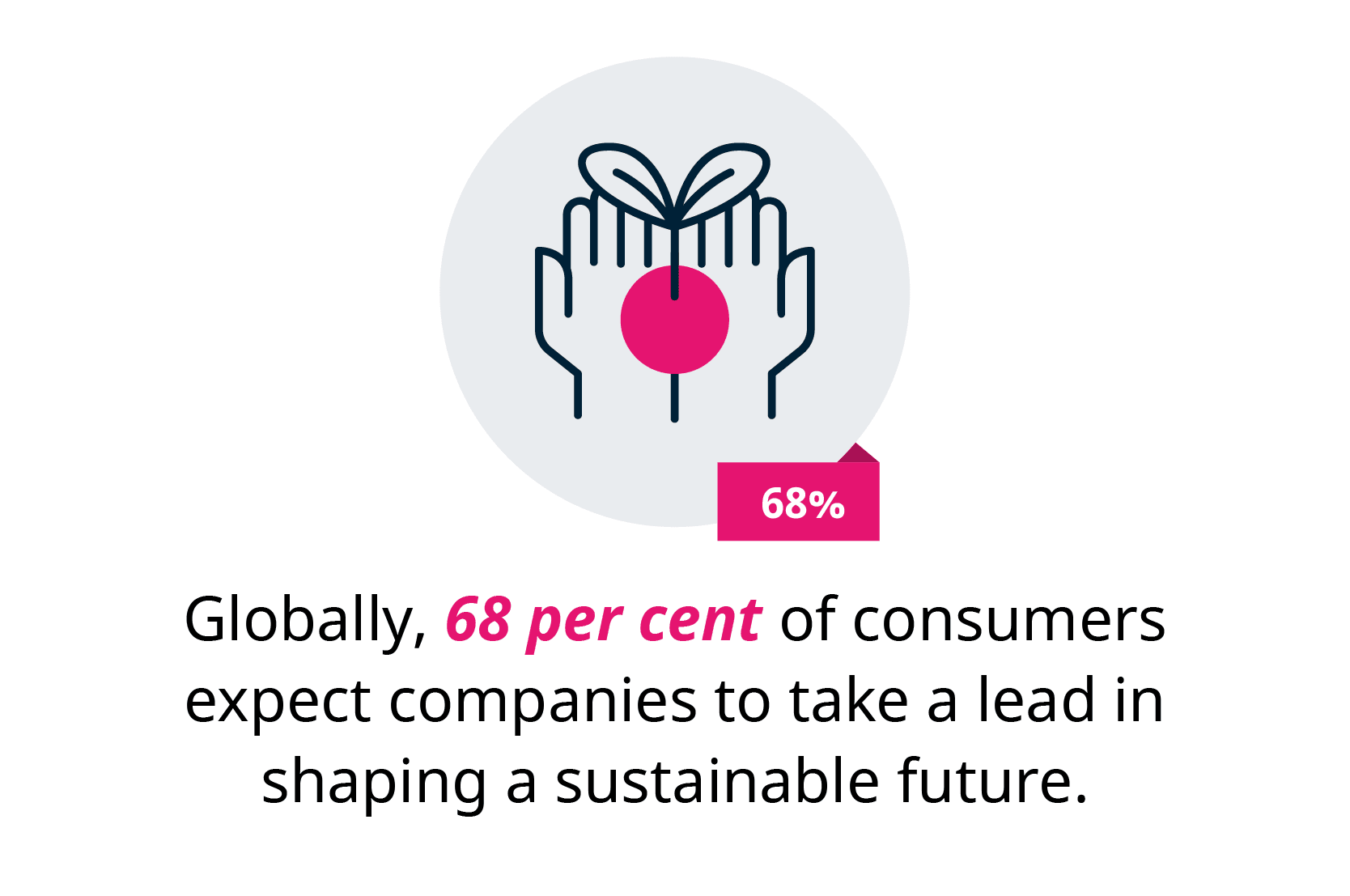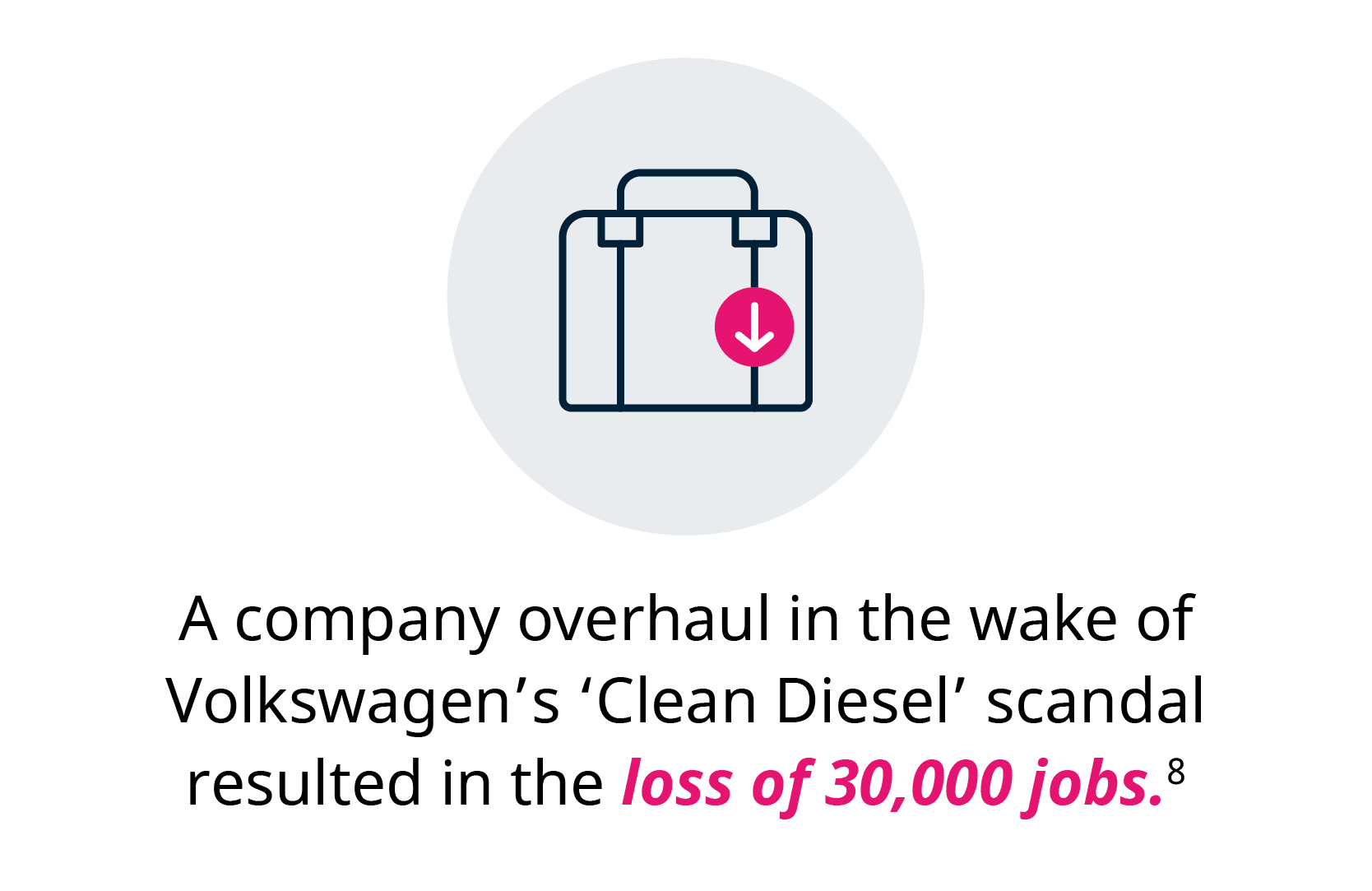What is Greenwashing & How Does it Impact CSR?
As the UN pushes for global adoption of its Sustainable Development Goals, organisations are under pressure to integrate sustainable practices into their business plans – for the good of both the world and themselves.1
According to the EY Future Consumer Index, 68 per cent of consumers globally expect companies to take a lead in shaping a sustainable future, while 55 per cent believe they should compel these organisations to do so.2

The value of casting a company in a green light is vast. Deutsche Bank research found companies that received good press with regards to climate awareness saw their share prices outperform the MSCI World Index by 26 per cent per year.3
But in order to realise the true value of corporate social responsibility practices, these sustainability claims need to be more than just for show. Businesses can easily fall into the trap of greenwashing their practices instead of integrating sustainable change into their strategies.
What is greenwashing?
Greenwashing, also known as green marketing or green sheen, is a form of marketing employed to make companies appear more sustainable than they are in practice.4
Companies achieve this misrepresentation through methods ranging from press releases about green projects or sustainability task forces, to rebranding products or services, and advertising materials.
One of the most famous greenwashing examples was the Volkswagen ‘Clean Diesel’ engine scandal. Following a marketing campaign proclaiming VW’s low-emissions, eco-friendly diesel technology, regulators began investigating emissions discrepancies between various car markets. Ultimately, the car manufacturing giant admitted to fitting their vehicles with a defeat device that reduced emissions when undergoing an emissions test.5 This led to a host of regulatory fines and several false advertising lawsuits being filed against VW, which cost the company $35 billion and resulted in millions of vehicles being recalled.6 Five years after the scandal, the company’s stock was still valued at 35 per cent below its previous levels.7

The VW case clearly highlights the pitfalls of greenwashing a business’s practices – for company image, shareholders, employees, and consumers.
Why should you care about greenwashing?
From laws mandating truth in labeling of products9 to increased investor and regulatory pressure to adhere to sustainability reporting standards,10 global organisations are increasingly expected to meaningfully improve their sustainability efforts.
As the demand for green practices increases, many companies will inevitably opt for the easy way out by using green marketing to appear environmentally responsible. However, appearances will only get a business so far. Governments, regulators, and stock markets are pushing forward mandatory disclosures on environmental impact.11
The onus now falls on businesses to not only adapt their strategies but also to lead and drive the charge for global sustainable change. EY’s The CEO Imperative: Make sustainability accessible to the consumer report poses the question to business: “How are you making your organisation more transparent, so people can see what’s behind your products and how you really do business? This is an opportunity to lead the market and build trust among the 80 per cent of global consumers who expect brands to be transparent about their environmental impact.”12
“This is an opportunity to lead the market and build trust among the 80 per cent of global consumers who expect brands to be transparent about their environmental impact.”
-The CEO Imperative: Make sustainability accessible to the consumer (EY, 2021)13
How to lead sustainability integration in your organisation
Professionals of all levels – not only those in leadership positions – need to take on the challenge of driving meaningful, sustainable change. To achieve this, workers need to upskill their sustainability leadership expertise.
The Business Sustainability Management online short course from the University of Cambridge Institute for Sustainability Leadership is geared towards working professionals who want to strengthen corporate social responsibility efforts and implement sustainability in their organisation. Over eight weeks, you’ll learn to develop and motivate an action plan for sustainable business practices and consider corporate sustainability in your organisation – affecting real change, not just greenwashing.
Deepen your knowledge of organisational sustainability with an online course
- 1 Toh, A. (Jul, 2021). ‘How to enhance long-term business value through sustainability’. Retrieved from EY.
- 2 Rogers, K., et al. (Jun, 2021). ‘The CEO Imperative: Make sustainability accessible to the consumer’. Retrieved from EY.
- 3 Haller, K., et al. (Jun, 2020). ‘Meet the 2020 Consumers Driving Change’. Retrieved from IBM.
- 4 Chen, J. (Feb, 2022). ‘Guide to green investing’. Retrieved from Investopedia.
- 5 Robinson, D. (Aug, 2021). ‘10 Companies and corporations called out for greenwashing’. Retrieved from Earth.org.
- 6 Petrequin, S. (Dec, 2020). ‘Volkswagen loses top EU court case in diesel scandal’. Retrieved from AP News.
- 7 Colvin, G. (Oct, 2020). ‘5 Years in, damages from the VW emissions cheating scandal are still rolling in’. Retrieved from Fortune.
- 8 Colvin, G. (Oct, 2020). ‘5 Years in, damages from the VW emissions cheating scandal are still rolling in’. Retrieved from Fortune.
- 9 Wilcox, M. (Jan, 2022). ‘The 6 sustainable packaging trends we’ll be watching in 2022’. Retrieved from GreenBiz.
- 10 Gerber, M., et al. (Feb, 2022). ‘ESG: 2021 Trends and expectations for 2022’. Retrieved from Skadden.
- 11 Fernandez, H. (Dec, 2021). ‘7 Trends that will shape sustainability in 2022’. Retrieved from Eco-Business.
- 12 Rogers, K. & Cosgrove, A. (Jun, 2021). ‘The CEO Imperative: Make sustainability accessible to the consumer’. Retrieved from EY.
- 13 Rogers, K. & al. (Jun, 2021). ‘The CEO Imperative: Make sustainability accessible to the consumer’. Retrieved from EY.
